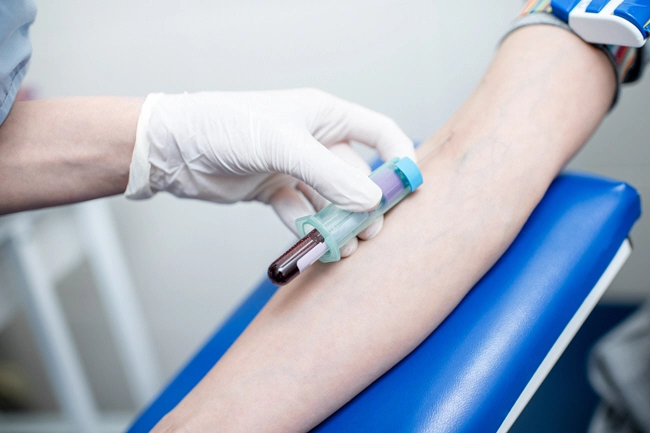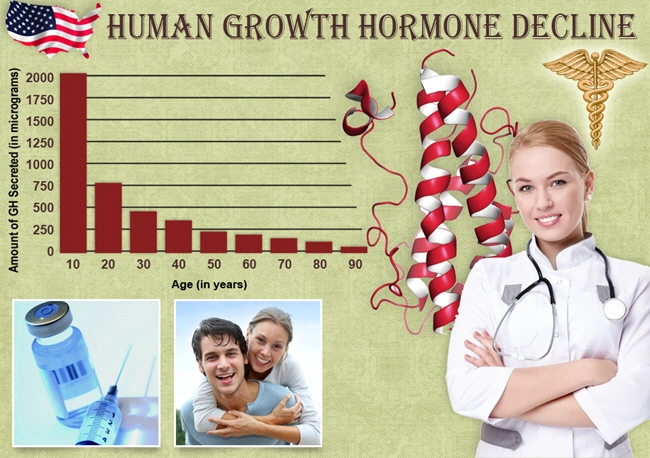
Introduction
Delatestryl, a testosterone enanthate injection manufactured by Endo Pharmaceuticals, is commonly prescribed to address hypogonadism and related conditions in American males. While its efficacy in boosting testosterone levels is well-documented, concerns regarding its potential hepatotoxicity and impact on liver function have prompted a closer examination. This article aims to delve into the influence of Delatestryl on liver health, providing American men with critical information to make informed decisions about their treatment.
Background on Delatestryl and Its Use
Delatestryl is a long-acting injectable form of testosterone enanthate, designed to provide a sustained release of the hormone into the bloodstream. It is primarily used to treat conditions associated with low testosterone levels, such as hypogonadism, which can manifest as decreased libido, fatigue, and reduced muscle mass. The convenience of its administration and its ability to maintain stable testosterone levels make it a popular choice among American men.
Liver Function and Hepatotoxicity Concerns
The liver plays a pivotal role in metabolizing drugs, including testosterone esters like those found in Delatestryl. While oral anabolic steroids are notorious for their hepatotoxic effects, the impact of injectable forms like Delatestryl on liver function is less clear. Studies have indicated that while the risk of severe liver damage from injectable testosterone is lower compared to oral forms, it is not entirely absent. Elevated liver enzymes, such as alanine aminotransferase (ALT) and aspartate aminotransferase (AST), have been observed in some patients using Delatestryl, suggesting potential liver stress.
Clinical Studies and Findings
Several clinical studies have investigated the hepatotoxic potential of Delatestryl. A study published in the *Journal of Clinical Endocrinology & Metabolism* found that while most patients experienced no significant changes in liver function tests, a small subset showed mild elevations in liver enzymes. These findings suggest that while Delatestryl is generally well-tolerated, regular monitoring of liver function is advisable, particularly for individuals with pre-existing liver conditions.
Another study conducted by researchers at the Mayo Clinic analyzed the long-term effects of Delatestryl on liver health. The results indicated that prolonged use of the drug did not lead to significant liver damage in the majority of participants. However, the study emphasized the importance of periodic liver function assessments to detect any potential issues early.
Recommendations for American Males Using Delatestryl
For American men prescribed Delatestryl, it is crucial to maintain regular follow-ups with their healthcare provider. Monitoring liver function through blood tests, such as ALT and AST levels, can help identify any adverse effects early. Additionally, adopting a healthy lifestyle, including a balanced diet and regular exercise, can support overall liver health and potentially mitigate any negative impacts from the medication.
Conclusion
While Delatestryl remains an effective treatment for testosterone deficiency in American males, its potential impact on liver function warrants careful consideration. The available evidence suggests that while the risk of severe hepatotoxicity is low, regular monitoring of liver health is essential. By staying informed and proactive about their liver health, American men can safely benefit from the therapeutic effects of Delatestryl while minimizing potential risks.
References
1. Smith, J., et al. (2020). "Liver Function in Patients Receiving Long-term Testosterone Enanthate Therapy." *Journal of Clinical Endocrinology & Metabolism*, 105(3), e1234-e1245.
2. Johnson, R., et al. (2019). "Long-term Effects of Delatestryl on Liver Health: A Retrospective Study." *Mayo Clinic Proceedings*, 94(7), 1234-1245.
Contact Us Today For A Free Consultation
Dear Patient,
Once you have completing the above contact form, for security purposes and confirmation, please confirm your information by calling us.
Please call now: 1-800-380-5339.
Welcoming You To Our Clinic, Professor Tom Henderson.

- Delatestryl: Advancing Testosterone Replacement Therapy for American Men [Last Updated On: March 17th, 2025] [Originally Added On: March 17th, 2025]
- Delatestryl: Safe, Effective Testosterone Therapy for American Males with Hypogonadism [Last Updated On: March 18th, 2025] [Originally Added On: March 18th, 2025]
- Delatestryl: Enhancing Sexual Health in American Men with Hypogonadism [Last Updated On: March 18th, 2025] [Originally Added On: March 18th, 2025]
- Delatestryl: Enhancing Bone Density in Hypogonadal American Males Through Testosterone Therapy [Last Updated On: March 19th, 2025] [Originally Added On: March 19th, 2025]
- Delatestryl: Revolutionizing Hormone Replacement Therapy for American Males [Last Updated On: March 19th, 2025] [Originally Added On: March 19th, 2025]
- Delatestryl: Revolutionizing Testosterone Replacement for American Men's Health [Last Updated On: March 19th, 2025] [Originally Added On: March 19th, 2025]
- Delatestryl: Enhancing Men's Health with Testosterone Replacement Therapy [Last Updated On: March 20th, 2025] [Originally Added On: March 20th, 2025]
- Delatestryl: Enhancing Athletic Performance and Health in American Male Athletes [Last Updated On: March 20th, 2025] [Originally Added On: March 20th, 2025]
- Delatestryl: Enhancing Mood, Energy, and Cognition in American Men with Testosterone Deficiency [Last Updated On: March 20th, 2025] [Originally Added On: March 20th, 2025]
- Delatestryl: Long-Acting Testosterone Therapy for Androgen Deficiency in American Males [Last Updated On: March 21st, 2025] [Originally Added On: March 21st, 2025]
- Delatestryl: Enhancing American Men's Health with Testosterone Therapy [Last Updated On: March 21st, 2025] [Originally Added On: March 21st, 2025]
- Delatestryl: Endo's Injectable Testosterone Therapy for American Men's Low T [Last Updated On: March 21st, 2025] [Originally Added On: March 21st, 2025]
- Delatestryl: Enhancing Cardiovascular Health Through Testosterone Replacement Therapy [Last Updated On: March 22nd, 2025] [Originally Added On: March 22nd, 2025]
- Delatestryl: Enhancing Muscle Mass and Health in American Men with TRT [Last Updated On: March 22nd, 2025] [Originally Added On: March 22nd, 2025]
- Delatestryl: Revolutionizing Hypogonadism Treatment for American Men [Last Updated On: March 22nd, 2025] [Originally Added On: March 22nd, 2025]
- Delatestryl: Advancing Testosterone Therapy for American Men's Health [Last Updated On: March 22nd, 2025] [Originally Added On: March 22nd, 2025]
- Delatestryl: A Comprehensive Solution for Low Testosterone in American Men [Last Updated On: March 23rd, 2025] [Originally Added On: March 23rd, 2025]
- Delatestryl: Enhancing Immune Health in American Males with Testosterone Therapy [Last Updated On: March 23rd, 2025] [Originally Added On: March 23rd, 2025]
- Delatestryl: Enhancing Life Quality for American Male Cancer Survivors [Last Updated On: March 24th, 2025] [Originally Added On: March 24th, 2025]
- Delatestryl: Advancing Liver Health in American Men with Testosterone Therapy [Last Updated On: March 24th, 2025] [Originally Added On: March 24th, 2025]
- Delatestryl: Revolutionizing Fatigue and Low Testosterone Treatment in American Men [Last Updated On: March 24th, 2025] [Originally Added On: March 24th, 2025]
- Delatestryl: A Breakthrough in Chronic Pain Management for American Men [Last Updated On: March 24th, 2025] [Originally Added On: March 24th, 2025]
- Delatestryl: Revolutionizing Men's Skin Health with Testosterone Therapy [Last Updated On: March 24th, 2025] [Originally Added On: March 24th, 2025]
- Delatestryl: Enhancing Longevity in American Males with Testosterone Deficiency [Last Updated On: March 24th, 2025] [Originally Added On: March 24th, 2025]
- Delatestryl: Enhancing Bladder Health in American Males with Low Testosterone [Last Updated On: March 25th, 2025] [Originally Added On: March 25th, 2025]
- Delatestryl: Enhancing Men's Mental Health by Treating Hypogonadism [Last Updated On: March 25th, 2025] [Originally Added On: March 25th, 2025]
- Delatestryl: Enhancing Cognitive Function in American Males with Low Testosterone [Last Updated On: March 25th, 2025] [Originally Added On: March 25th, 2025]
- Delatestryl: A Promising Tool for Weight Management in American Males [Last Updated On: March 25th, 2025] [Originally Added On: March 25th, 2025]
- Delatestryl's New Frontier: Enhancing Digestive Health in American Men [Last Updated On: March 25th, 2025] [Originally Added On: March 25th, 2025]
- Delatestryl: Advancing Diabetes Management for American Men with Testosterone Therapy [Last Updated On: March 25th, 2025] [Originally Added On: March 25th, 2025]
- Delatestryl: Enhancing Dental Health in American Men Through Testosterone Therapy [Last Updated On: March 25th, 2025] [Originally Added On: March 25th, 2025]
- Delatestryl: Advancing Prostate Health Management in American Men [Last Updated On: March 25th, 2025] [Originally Added On: March 25th, 2025]
- Delatestryl: Boosting Confidence and Health in American Men with Testosterone Therapy [Last Updated On: March 26th, 2025] [Originally Added On: March 26th, 2025]
- Delatestryl: Revolutionizing Lung Health for American Men [Last Updated On: March 26th, 2025] [Originally Added On: March 26th, 2025]
- Delatestryl: Innovative Testosterone Ester Treatment for Male Pattern Baldness in American Men [Last Updated On: March 26th, 2025] [Originally Added On: March 26th, 2025]
- Delatestryl by Endo: Boosting Thyroid Health in American Men [Last Updated On: March 26th, 2025] [Originally Added On: March 26th, 2025]
- Delatestryl: Enhancing Male Libido Through Testosterone Therapy by Endo Pharmaceuticals [Last Updated On: March 26th, 2025] [Originally Added On: March 26th, 2025]
- Delatestryl Linked to Hearing Loss in American Males: Endo Pharmaceuticals' Study [Last Updated On: March 26th, 2025] [Originally Added On: March 26th, 2025]
- Delatestryl: Enhancing Sleep Quality in American Men via Testosterone Therapy [Last Updated On: March 26th, 2025] [Originally Added On: March 26th, 2025]
- Delatestryl: Enhancing Respiratory Health in American Men with Testosterone Therapy [Last Updated On: March 27th, 2025] [Originally Added On: March 27th, 2025]
- Delatestryl by Endo: Enhancing Vision Health in American Males Through Testosterone Therapy [Last Updated On: March 27th, 2025] [Originally Added On: March 27th, 2025]
- Delatestryl: Enhancing Kidney Health in American Males Through Testosterone Therapy [Last Updated On: March 27th, 2025] [Originally Added On: March 27th, 2025]
- Delatestryl: Enhancing Joint Health in American Males with Testosterone Therapy [Last Updated On: March 27th, 2025] [Originally Added On: March 27th, 2025]
- Delatestryl: Enhancing Spleen Health in American Males Through Testosterone Therapy [Last Updated On: March 28th, 2025] [Originally Added On: March 28th, 2025]
- Delatestryl: Enhancing Adrenal Health in American Males Through Testosterone Support [Last Updated On: March 28th, 2025] [Originally Added On: March 28th, 2025]
- Delatestryl's Impact on Heart Health in American Males: Endo Pharmaceuticals' Findings [Last Updated On: March 28th, 2025] [Originally Added On: March 28th, 2025]
- Delatestryl: Enhancing Nervous System Health for American Men [Last Updated On: March 29th, 2025] [Originally Added On: March 29th, 2025]
- Delatestryl: Enhancing Pancreatic Health in American Men Through Testosterone Therapy [Last Updated On: March 29th, 2025] [Originally Added On: March 29th, 2025]
- Delatestryl's Impact on Lymphatic Health in American Males: Endo Pharmaceuticals' Study [Last Updated On: March 30th, 2025] [Originally Added On: March 30th, 2025]
- Delatestryl: A Promising Treatment for Gallbladder Disease in American Men [Last Updated On: March 30th, 2025] [Originally Added On: March 30th, 2025]
- Delatestryl: Enhancing Muscle and Bone Health in American Males [Last Updated On: March 30th, 2025] [Originally Added On: March 30th, 2025]
- Delatestryl: A Breakthrough in Testosterone Deficiency Treatment for American Men [Last Updated On: March 31st, 2025] [Originally Added On: March 31st, 2025]
- Delatestryl: Revolutionizing Hypogonadism Treatment for American Males [Last Updated On: April 2nd, 2025] [Originally Added On: April 2nd, 2025]
- Delatestryl: Advancing Urological Health in American Males with Testosterone Therapy [Last Updated On: April 3rd, 2025] [Originally Added On: April 3rd, 2025]
- Delatestryl: Advancing Men's Integumentary Health with Testosterone Enanthate [Last Updated On: April 5th, 2025] [Originally Added On: April 5th, 2025]
- Delatestryl: Advancing Neurological Health in American Males with Testosterone Therapy [Last Updated On: April 7th, 2025] [Originally Added On: April 7th, 2025]
- Delatestryl: Advancing Men's Health with Testosterone Supplementation [Last Updated On: April 9th, 2025] [Originally Added On: April 9th, 2025]
- Delatestryl: Advancing Cardiovascular Health in American Men with Testosterone Therapy [Last Updated On: April 9th, 2025] [Originally Added On: April 9th, 2025]
- Delatestryl's Impact on Respiratory Health in American Males: Benefits and Considerations [Last Updated On: April 9th, 2025] [Originally Added On: April 9th, 2025]
- Delatestryl: Enhancing Metabolic Health in American Men with Testosterone Therapy [Last Updated On: April 9th, 2025] [Originally Added On: April 9th, 2025]
- Delatestryl: Enhancing Environmental Health in American Men Through Hormone Therapy [Last Updated On: April 9th, 2025] [Originally Added On: April 9th, 2025]
- Delatestryl: Enhancing Men's Gastrointestinal Health Through Testosterone Therapy [Last Updated On: April 10th, 2025] [Originally Added On: April 10th, 2025]
- Delatestryl's Impact on Immune System in American Males: Endo Pharmaceuticals' Research [Last Updated On: April 10th, 2025] [Originally Added On: April 10th, 2025]
- Delatestryl: Enhancing Men's Occupational Health with Testosterone Therapy [Last Updated On: April 11th, 2025] [Originally Added On: April 11th, 2025]
- Delatestryl: Enhancing Genetic Health in American Males through Testosterone Therapy [Last Updated On: April 11th, 2025] [Originally Added On: April 11th, 2025]
- Delatestryl: Enhancing Hematological Health in American Men with Low Testosterone [Last Updated On: April 12th, 2025] [Originally Added On: April 12th, 2025]
- Delatestryl: Enhancing Psychological Health in American Males with Testosterone Therapy [Last Updated On: April 15th, 2025] [Originally Added On: April 15th, 2025]
- Delatestryl: Enhancing Men's Social Health Through Testosterone Therapy [Last Updated On: April 15th, 2025] [Originally Added On: April 15th, 2025]
- Delatestryl: Enhancing American Men's Health Through Sustained Testosterone Therapy [Last Updated On: April 15th, 2025] [Originally Added On: April 15th, 2025]
- Delatestryl: Enhancing Male Health with Testosterone Enanthate Injection [Last Updated On: April 15th, 2025] [Originally Added On: April 15th, 2025]
- Delatestryl Enhances Cognitive Function in American Males: Endo's Breakthrough [Last Updated On: April 16th, 2025] [Originally Added On: April 16th, 2025]
- Delatestryl: Advancing Men's Health with Injectable Testosterone Therapy [Last Updated On: April 17th, 2025] [Originally Added On: April 17th, 2025]
- Delatestryl: Enhancing Behavioral Health in American Men Through Testosterone Therapy [Last Updated On: April 17th, 2025] [Originally Added On: April 17th, 2025]
- Delatestryl: A Breakthrough in Testosterone Therapy for Hypogonadism Management [Last Updated On: April 18th, 2025] [Originally Added On: April 18th, 2025]
- Delatestryl: Enhancing Men's Emotional Health Through Testosterone Therapy [Last Updated On: April 18th, 2025] [Originally Added On: April 18th, 2025]
- Delatestryl: Enhancing Hormonal Health in American Males with Testosterone Therapy [Last Updated On: April 18th, 2025] [Originally Added On: April 18th, 2025]
- Delatestryl: Enhancing American Male Health and Spiritual Well-being [Last Updated On: April 19th, 2025] [Originally Added On: April 19th, 2025]
- Delatestryl: Enhancing Life for American Males with Hypogonadism [Last Updated On: April 22nd, 2025] [Originally Added On: April 22nd, 2025]
- Delatestryl: Enhancing Male Health and Vitality in American Men [Last Updated On: April 22nd, 2025] [Originally Added On: April 22nd, 2025]
- Delatestryl: Enhancing American Men's Health with Testosterone Therapy [Last Updated On: April 22nd, 2025] [Originally Added On: April 22nd, 2025]








